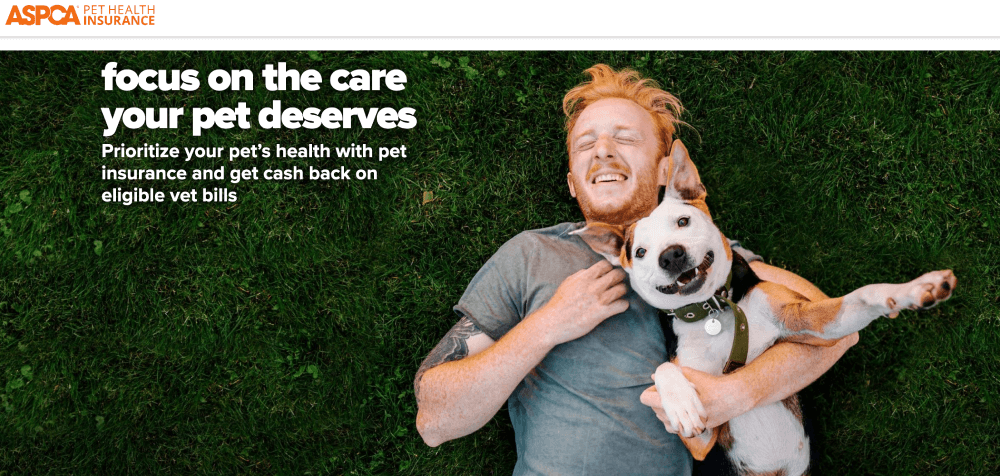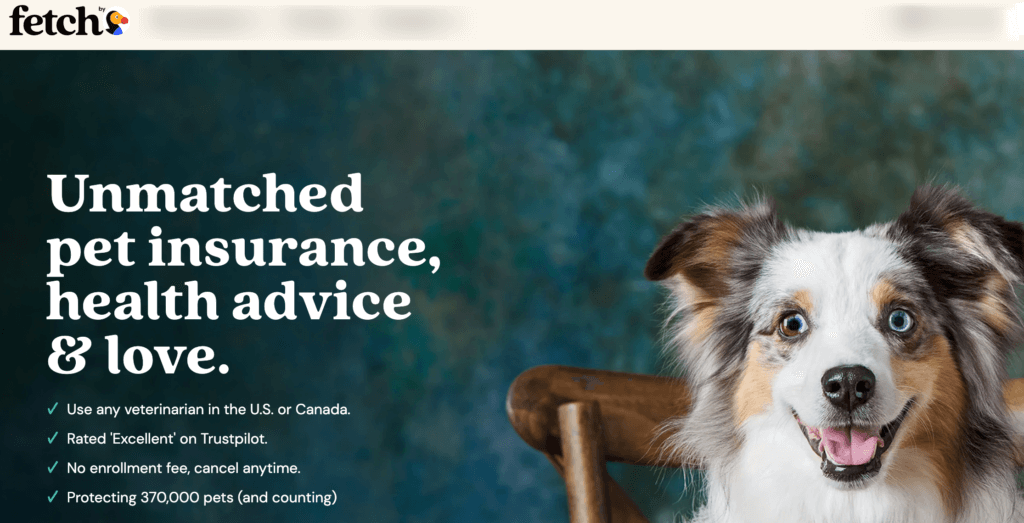Things to Consider Before Choosing Pet Insurance in Wisconsin
- The type of coverage you need: Some pet insurance plans only cover accidental injuries, while others also cover illnesses. You will need to decide what type of coverage is right for you and your pet.
- The cost of the plan: Pet insurance can be expensive, so it is important to find a plan that fits your budget.
- The deductible and reimbursement rate: The deductible is the amount of money you will have to pay out of pocket before your insurance kicks in. The reimbursement rate is the percentage of the vet bill that your insurance will cover.
- The waiting period: Some pet insurance companies have a waiting period before they will cover certain conditions. This is usually around 14 days.
- The policy limits: The policy limits are the maximum amount of money your insurance will pay out for a single claim or over the lifetime of your pet.
Introduction
Badger State pet lovers – do you enjoy making a lifetime’s worth of memories with your furry pals? Exciting as having a pet to play with might be, unfortunately, pet accidents also tend to happen.
To be prepared for any physical or emotional issue your pet is dealing with, suitable pet insurance must be set in place.
Pet owners in Wisconsin should be concerned about the welfare of their animals, be it an injury, an illness, a serious condition like cancer, or an emotional problem.
Luckily, by getting the best pet insurance in the state, you will manage to select a suitable plan that matches both your budget and your pet’s needs, and that always tends to your pup’s or kitten’s issues.
But how can you know which of the many US pet insurance companies is best for your pet?
If you still haven’t found your Wisconsin pet insurance provider for 2023, we are at your service.
Here are the best pet insurance Wisconsin providers to keep an eye on.
Embrace
There’s no doubt that Embrace pet insurance has the greatest deductibles in the business. More than 100,000 canines have been cared for since Embrace’s inception in 2003, and that number continues to grow.
The diseases and problems that Embrace helps with include chemotherapy and radiation, rehabilitation in the home, hospitalization, and more.
Every insurance policy sold is matched with $2 to a pet-related charity by the company’s employees. The more pets someone has, the more discounts they may get, including ACH reductions and savings on spay/neuter.
Plans & Coverage
As part of its preventative care, Embrace gives basic veterinary training and grooming to its pets. The Healthy Pet Deductible can save you $50 a year on your pet’s insurance if you don’t use it. There is only accident coverage for pets over the age of 14, and it costs $100 a year, with a coverage of up to $5,000.
When a dog or cat is injured or sick, Embrace’s five-yearly deductibles, three reimbursement rates, and five annual limits of up to $30,000 are available.
As part of its unique non-insurance Wellness Rewards program, Embrace pays for all of the costs of regular veterinary care up to a certain amount for each year your pet is insured.
If you’re looking for cheap pet insurance in Wisconsin, Embrace has a shorter list of things they don’t cover than any other company. People who get Embrace insurance don’t have to pay for things like pregnancies, illnesses, injuries, cosmetic surgery, DNA testing, and stem cell therapy.
The policy says that a veterinarian’s health report must be given within 12 months before or 14 days after the policy comes into effect.
Pros
- A mobile app for processing claims and managing insurance.
- A free medical history review.
- A wellness program for healthy pets is included as an added benefit.
Cons
- Exceptions for pre-existing conditions are not allowed.
- You can’t set a limit of $30,000 per year.
Lemonade
Lemonade is also one wonderful choice for a Wisconsin pet insurance company because it pays claims quickly and has a digital platform for signing up, filing claims, and getting customer service.
Plans & Coverage
A single plan for pet accidents and illnesses from Lemonade pet insurance Wisconsin is available, which makes the process of picking services easier for pet parents.
There are five annual coverage limits of up to $100,000, alongside three annual deductibles, and three refund rates that consumers can choose from when they sign up for the pet plan.
Every pet’s age, breed, medical history, and ZIP code are taken into account by Lemonade when a charging cost is established. In addition, three different preventive care packages are available to help you figure out how to pay for the long-term care of your pet’s health.
Lemonade clients in Wisconsin pay anywhere from $20 to $40 a month for dog insurance, and between $13 and $23 for cat insurance.
Pros
- Take less than 90 seconds to register.
- An easy-to-use app for your phone.
- It takes 48 hours to get accident coverage.
Cons
- Microchipping and spay/neuter services are not included.
- Behavioral therapy is not covered.
Healthy Paws
Over the last five years, Healthy Paws has given $1.6 million to the U.S. shelter system to pay for important medical care for homeless pets.
As both a pet insurance company and a non-profit animal welfare group, Healthy Paws pet insurance is 100% committed to making sure that all of your pets have access to high-quality pet care.
Plans & Coverage
If you want unlimited coverage at a reasonable price, Healthy Paws’ accident and sickness plan may be the best option for the best pet insurance in Wisconsin for you.
Many other carriers charge a lot more for unlimited coverage than Healthy Paws does. Healthy Paws policies have different coverage options depending on how old your pet is. Insurance for your pet covers a wide range of illnesses and medical costs, including cancer and other diseases that run in the family or are passed down generationally.
Amongst other perks, the provider also covers chronic illnesses and hospital stays.
Pet parents in Wisconsin can expect to pay about $45 for dog insurance and $20 for cat insurance. Healthy Paws does not include preventive care in its standard plan.
Other things that aren’t covered are behavioral therapy, exam costs, vet visit fees, and spay/neuter procedures.
Pros
- When a customer requests a pet insurance quotation, the company donates to a charitable cause.
- The smartphone app offers valuable pet care and training materials.
Cons
- Some dog breeds and dogs of certain ages aren’t eligible for custom refund rates and deductibles.
- For accidents, there is a 15-day waiting time.
Prudent Pet
From the most basic to the most comprehensive annual plans, Prudent Pet has you covered. In Wisconsin, Prudent Pet Insurance is the best option for pet owners who prefer yearly fees over monthly ones. \
Plans & Coverage
Dogs cost an average of $39 per month, while cats cost $23 per month. Prudent Pet, on the other hand, focuses only on dogs and cats and does not include other pets.
Bites, fractures, and other traumatic injuries are all covered under the Accident-Only Plan for up to a maximum of $10,000 per calendar year. All of these accidents and diseases, as well as congenital and inherited problems like hip dysplasia, are covered by the provider’s Essential Plan.
Not just that but vaccinations and veterinary visits are also included in one of Pet Plan’s wellness programs, which helps cover the cost of standard pet care.
Broken bones, surgery, hospitalization, bladder infections, hip osteoarthritis, and more are all covered by Prudent Pet’s plans. However, organ transplants, cosmetic operations, and alternative medicines are not covered in the plan price.
Pros
- Discounts of 10% are available for several pets.
- A veterinarian chat service that is open 24/7;
- It doesn’t matter how old your pet is.
Cons
- Lack of a mobile app;
- Several exclusions.
ASPCA
Another of the best Wisconsin pet insurance in 2023 is ASPCA – one of the world’s most extensive animal welfare groups. First founded in 2006, pet owners in Wisconsin can completely trust ASPCA’s service and their carefully designed pet insurance plans.
Plans & Coverage
Yearly limitations, repayment rates, and coverage for horses are all different when getting a specific ASPCA pet insurance. As a leading provider, ASPCA offers two preventive care programs to help reduce predictable pet healthcare costs:
- Gold ($9.95 per month)
- Platinum ($24.95 per month)
The complete ASPCA coverage for dogs in Wisconsin costs $34 to $50 a month and $18 to $30 for cats in Wisconsin. The ASPCA’s fees are higher than the national average of $50 for dogs and $28 for cats.
There are extra wellness plans for pet owners who want to keep up with their pets’ preventative health care. People who buy pet insurance have to pay a $100 deductible and have to wait 14 days after they first sign up to get their coverage for pet accidents or illnesses paid for.
Pros
- All implant costs are covered, regardless of the plan tier.
- This insurance includes coverage for cats, dogs, and horses.
- There is a 10% discount for several pets.
Cons
- The maximum amount of coverage available each year is $10,000.
- Up to 30 days to file a claim.
Fetch by Dodo (Petplan)
Fetch by Dodo covers medical pet issues such as infections and oral or mouth issues. Additionally, Fetch’s insurance assists with behavioral issues in pets, like separation anxiety.
Plans & Coverage
You will be rewarded for boarding bills, vacation cancellation fees, and reward or advertising spending, in case you search for your missing pet for more than four days – all under their basic program.
Unlike many other pet insurance carriers, Fetch by Dodo excludes preventative treatment from its coverage.
Fetch’s accident and illness insurance policy offers coverage levels of $5,000, $15,000, or limitless. This new program will cover the costs of veterinary treatment for those suffering from cancer, broken bones, chronic diseases, and genetic conditions.
Pros
- Veterinary visit expenses are refundable for up to $1,000.
- Pet owners may earn back their advertising and incentive money.
Cons
- There are no savings for owning more than one pet.
- Mishaps require a 15-day waiting period.
Figo
Figo makes one of the leading Wisconsin pet insurance providers and has numerous perks for pet parents who want to save up and make the most of their plan.
Plans & Coverage
Figo’s pet insurance gives you the option to select an annual payout of $5,000, $10,000, or an indefinite amount, applicable for chronic ailments like torn knee ligaments and cancer, as well as certain conditions like hip dysplasia.
Their Extra Care Pack is one of their leading coverage add-ons available.
Owning a pet entails a bevy of costs, such as veterinarian expenses and up to $10,000 in property damage liability insurance. Luckily, the Extra Care Pack covers costs that include damage to third-party property, vacation cancellation fees if your pet gets sick or lost-pet advertising costs in the case that your pet is ever reported missing.
Pros
- Charges less for older pets than many of its competitors.
- Shorter waiting periods for injuries.
- 100% repayment rate for coverage without any copays.
Cons
- Doesn’t pay for the behavioral treatments.
- To stay covered, your pet must have annual exams.
How Much Does Pet Insurance Wisconsin Cost?
Accident and sickness policies in Appleton, Wisconsin, cost $36.45, whereas, in Bayfield, it costs $27.72 for a 3-year-old dog.
Dogs are more prone to suffer from pricey health concerns, such as cruciate ligament ruptures, and hip dysplasia. In Wisconsin, the average cost of pet health insurance for dogs runs from $18 to $45 per month, while the average cost for cats is $13 to $30 per month.
Your monthly fee is based on your pet’s age, breed, and medical history, as well as where you live in Wisconsin. If your pet is of a breed that is more prone to certain diseases than others, your insurance rates will reflect this.
FAQ: Pet Insurance in Wisconsin
Can pet insurance in Wisconsin be used immediately?
Depending on the plan, waiting periods may vary, but it is usual for insurance coverage to not begin immediately after you have purchased it. Pet insurance companies might not tend to pet owners who purchase plans only when their pets exhibit indications of a medical condition.
What can pet insurance cover?
Unexpected illnesses, accidents, surgeries, drugs, and other diagnostic procedures are all covered by the vast majority of pet insurance plans. They also cover the expenses of emergency treatment and examination. Many costs in these areas are often paid, and some are not reimbursed.
How can I lower my monthly premiums with these pet insurances?
Those who would prefer to lessen the cost of their monthly premium may be able to do so by decreasing their reimbursement level and/or increasing their deductible.











